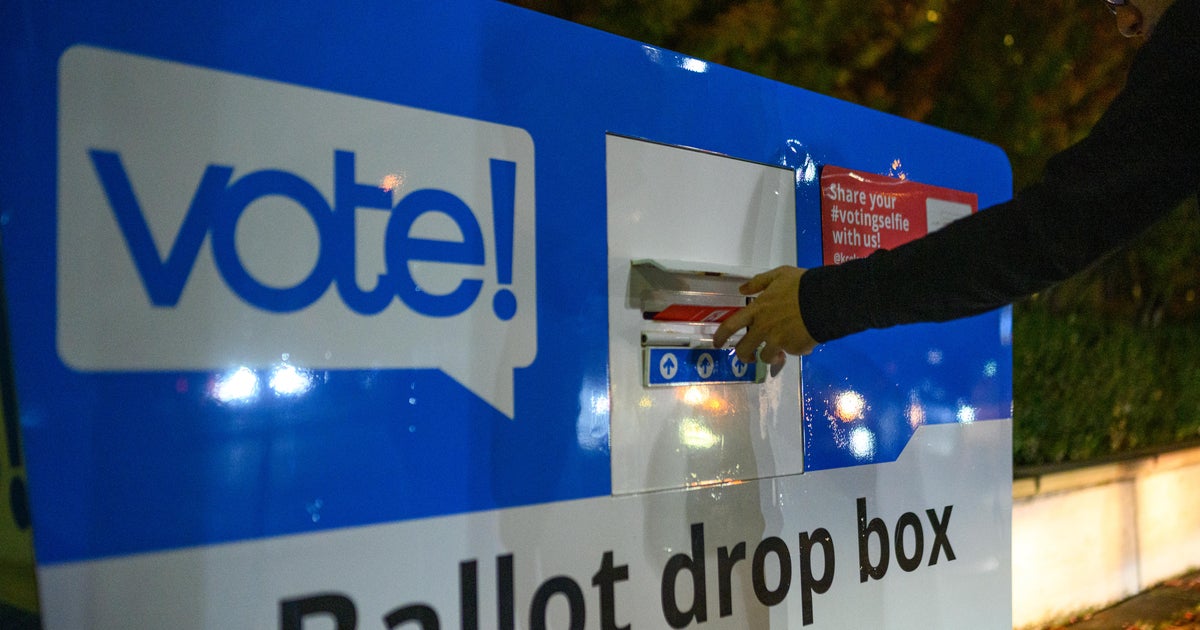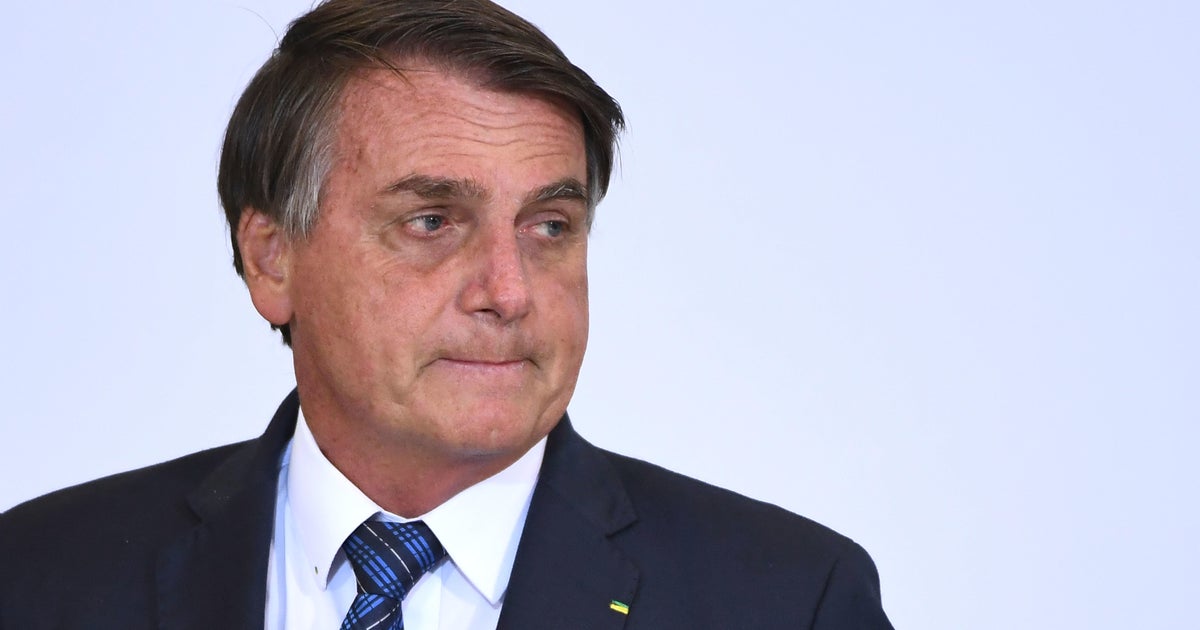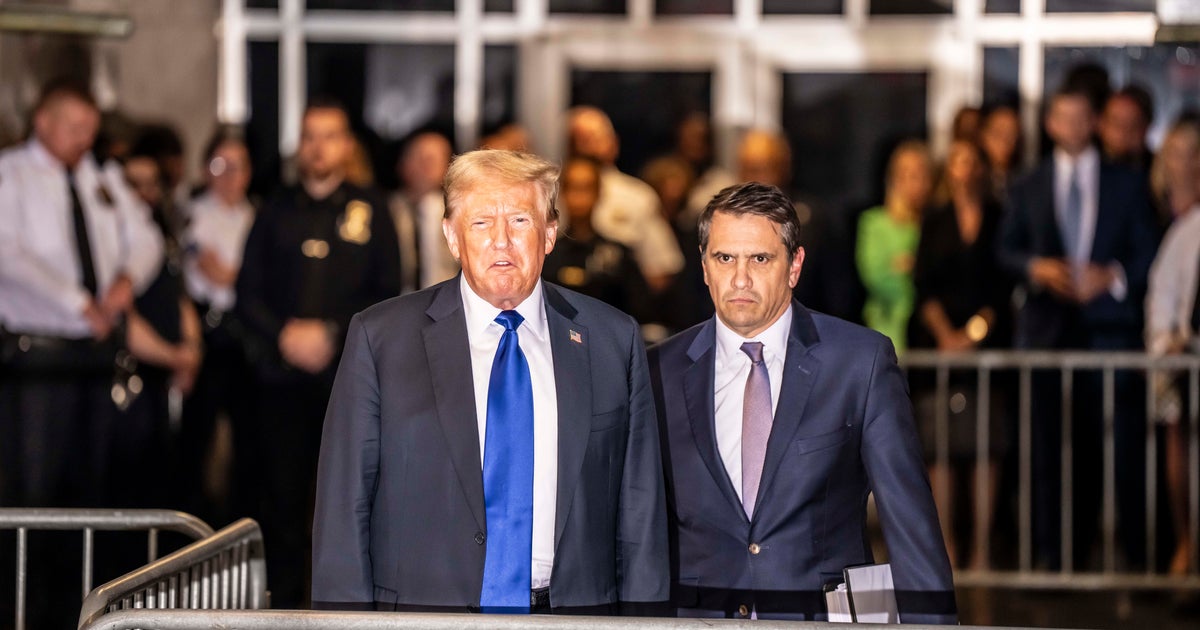Bashar Assad cements rule over war-torn Syria in election dismissed by U.S. as "neither free nor fair"
Damascus — Thousands of Syrians massed outside polling stations in government-controlled parts of the country on Wednesday to vote in an election virtually guaranteed to keep President Bashar Assad at the helm of a country devastated by a decade of civil war. As the country's muted political opposition called for a boycott of the vote, riot police struggled outside some balloting centers to control the crowds who did turn up, many carrying banners in support of the incumbent president.
Editor's note: On May 27, Syrian officials announced that President Assad had won the election in a landslide, taking 95% of the vote - which, of course, was only held in government-controlled areas - giving him a fourth seven-year mandate.
It was Syria's second presidential election since the 2011 popular uprising against Assad's rule turned into an all-out civil war.
Thanks to support from Russia that helped turn the tide in the war, Assad's rule is no longer seriously threatened by ISIS or the rebels who've enjoyed varying degrees of support from the West. But with an overall death toll estimated at more than 400,000 and millions of people forced from their homes, the war is still simmering in some corners of the country.
Seven women were among the 51 people who put themselves forward as potential candidates to challenge Assad in this election.
Syria's judiciary vetted the nominees according to stringent criteria: Candidates must be Muslim, must have lived in Syria for the past 10 years (which conveniently disqualifies exiled opposition figures) and must have the support of at least 35 members of the 250-member parliament.
At the end of that vetting process, only two remained: Abdallah Saloum Abdallah and Mahmoud Ahmed Marei, both largely unknown to the country.
"Neither free nor fair"
Assad's campaign dominated the landscape. The streets of Syria's main cities were adorned with posters showing the president or praising him.
No one had the political machinery or the money necessary to run a serious campaign to challenge Assad, who has ruled the country since taking over from his father in 2000.
Some 12 million Syrians who've been displaced by the war, seeking refuge both inside and outside the country, were not eligible to vote.
There were no polling stations in parts of the country still controlled by non-government forces, including rebel-held Idlib province and regions in the north where Kurdish factions hold sway.
The U.S. joined several European partners and the Syrian opposition to deride the "regime's attempts to regain legitimacy." Secretary of State Antony Blinken said the "so-called presidential election" was "neither free nor fair."
The only international observers invited to oversee the voting were parliamentary delegations from 14 nations, including Russia, Iran, China and Belarus.
"Bashar, Bashar, Only Bashar"
Assad chose to cast his ballot in the city of Douma, just outside Damscus. State television captured the moment and set it to dramatic music as Assad and his wife were surrounded by hundreds of people chanting pro-government slogans and cheering, "Bashar, Bashar, only Bashar," as they cast their ballots.
It was a symbolic move: In April 2018, a chemical warfare attack was carried out in Douma, then a rebel stronghold. Medics and witnesses said between 40 and 50 people were killed in the attack, which the U.S., Britain and France said was carried out by Assad's own army. Syria and Russia said it was rebels who used the noxious gas, and they dismissed widely circulated videos purportedly showing the aftermath of the attack as staged.
As people hit the polling booths, nobody doubted that Assad was going to win, but by how much? In 2014, official figures show he got almost 90% of the vote.
This year, Syrians were voting amid the coronavirus pandemic and a crushing economic crisis. The country has been grappling with food and electricity shortages, with many in government-controlled areas spending hours in line for fuel and bread. Power cuts have forced local businesses to close, which has driven up unemployment in recent months.
Still, after years of steady military gains thanks to his international allies in Moscow and Iran, Assad's popularity has been on the rise.
"I am convinced that he is the sole leader who can achieve the aspirations of the Syrian people and guarantee to keep Syria strong," said Sami Kutaini, a 23-year-old university student who proudly wore a baseball cap with Assad's face emblazoned on it.
He told CBS News he voted to "express my love to my country and my leader, who is giving us freedom, safety and security."
At one polling station, many voters declined to go behind the curtain to vote privately, instead publicly circling Assad's name for all to see.
"Without him, Syria is divided," screamed one voter who refused to give his name, saying he wasn't seeking publicity. "He is the only one who can bring the country to stability and prosperity."
"I am aware the economy is fading, but this is due to U.S. and European sanctions, which are in fact punishing the ordinary citizens who are backing the government," the man said in reply to a question.
Several voters admitted ignorance when asked about those standing against Assad, including 43-year-old accountant Samar, who said the president would get her vote.
"Are you kidding me? Who else?" she said with a laugh as she went to cast her ballot.





